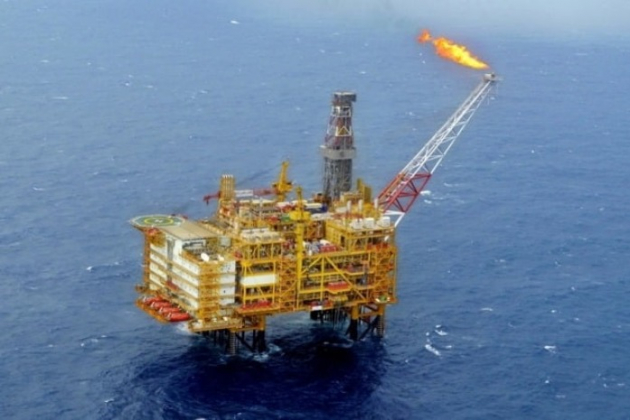Earnings
Korea's big three trading firms log record profit in Q1
They earned profits from new businesses, such as overseas LNG, palm oil and soft coal mine developments
May 02, 2022 (Gmt+09:00)
3
Min read
Most Read
Hankook Tire buys $1 bn Hanon Systems stake from Hahn & Co.


NPS to hike risky asset purchases under simplified allocation system


UAE to invest up to $1 bn in S.Korean ventures


Osstem to buy BrazilŌĆÖs No. 3 dental implant maker Implacil


US multifamily market challenges create investment opportunities



South KoreaŌĆÖs top three general trading companies, LX International Corp., POSCO International Corp. and Samsung C&T Corp. achieved record-high quarterly performances during the first quarter of this year, thanks to global raw materials shortage and logistics cost hikes. The general trading companies, which usually work as conduits between buyers and sellers, are thriving with businesses such as overseas natural resource development.
The combined operating profits of the three companies in the first quarter reached 651.7 billion won ($514.2 million), according to KoreaŌĆÖs Financial Supervisory Service (FSS) on May 1. The amount is more than double their combined operating profits in the same period a year ago, 314.1 billion won.┬Ā┬Ā
LX International, formerly known as LG International, achieved 4.9 trillion won of sales and 245.7 billion won of operating profit in the first quarter on a consolidated basis. It was the highest quarterly achievement in the companyŌĆÖs previous records, including the performances it posted as LG Corp.'s subsidiary. LG spun off LX Holdings in May 2021, a parent company of the former LG International, and LG International renamed itself LX International in the following month.┬Ā
LX InternationalŌĆÖs performance was backed by its equity gains from Ganda Alam Makmur (GAM) coal mine in Indonesia. The opencast mine, operated by LX InternationalŌĆÖs subsidiary PT Ganda Alam Makmur and its partner Titan Infra Energy, posted an estimated 120 billion won in operating profit in the first quarter in line with the soaring price of bituminous coal. Also, LX InternationalŌĆÖs palm plantations in Indonesia boosted the quarterly performance as global palm oil prices surged.
POSCO International, the general trading unit of steelmaking giant POSCO, posted a record-high operating profit of 216 billion won in the first quarter. That's up 70.2% from 126.9 billion won in the same quarter of last year.
The company has benefited from rising prices of global liquefied natural gas (LNG) In line with surging oil prices. POSCO International, known as Daewoo International until 2019, started full-scale production of natural gas in 2013 in the Shwe gas field in the Bay of Bengal, off the coast of Myanmar. Last October, the Korean trading company said it will acquire Australian LNG producer Senex Energy Ltd. and completed the acquisition in March for A$442.4 million for a 50.1 stake.┬Ā┬Ā
Samsung C&T, consisting of SamsungŌĆÖs construction and engineering, general trading, fashion and resort businesses, posted 190 billion won in operating profit from the general trading division in the first quarter. This was up 126.2% from 84 billion won in the same period of 2021.
The general trading division covers chemicals, steel, power generation facilities, chip and secondary battery materials and others. Linking raw material sellers and product manufacturers, Samsung's general trading division accounts for a greater proportion of the company's sales than the trading divisions of their peers.
The majority of Korean general trading companies were founded after 1975 when the country implemented a law to support exports. As of 1999, general trading companiesŌĆÖ exports accounted for 51% of the countryŌĆÖs total export volume. The percentage plunged to 2% as of 2020 as some major companies have increased exports on their own or reduced trade financing. The firms are accelerating their new businesses, such as natural resource development, renewable power solutions, digital infrastructure and future mobility, to survive in the fast-changing trading environment.
By Kyung-Min Kang┬Ā
kkm126@hankyung.com
Jihyun Kim edited this article.
More to Read
-
 Corporate investmentLX InternationalŌĆÖs value soars on cryptocurrency, GAM mine in Indonesia
Corporate investmentLX InternationalŌĆÖs value soars on cryptocurrency, GAM mine in IndonesiaApr 27, 2022 (Gmt+09:00)
2 Min read -
 Electric vehiclesKoreaŌĆÖs trading firms set sights on EV parts production for growth
Electric vehiclesKoreaŌĆÖs trading firms set sights on EV parts production for growthFeb 22, 2022 (Gmt+09:00)
2 Min read -
 Electric vehiclesPOSCO International signs parts supply deal with US EV startup Rivian
Electric vehiclesPOSCO International signs parts supply deal with US EV startup RivianDec 02, 2021 (Gmt+09:00)
1 Min read -
 EnergyPOSCO International, Petronas sign PSC for Malaysian gas development
EnergyPOSCO International, Petronas sign PSC for Malaysian gas developmentNov 02, 2021 (Gmt+09:00)
1 Min read
Comment 0
LOG IN


